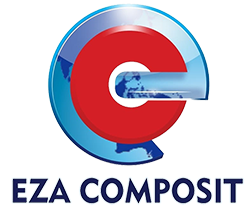Hedge accounting Lecture notes 1 Warning: TT: undefined function: 32 50 Overview of Hedge
Content

KPMG supports the use of each possible type of hedge accounting in accordance with accounting standards. KPMG was the advisor of the largest banks in Poland in the implementation of hedge accounting, including the most advanced, and of many companies in the non-financial sector. Economic uncertainty may affect when and how a company applies hedge accounting. Our course, Embedded Derivatives, will help you understand the considerations necessary to evaluate a hybrid instrument as well as how to account for embedded derivatives. The adjustment to the carrying value of a hedged item if often referred to as a ‘basis adjustment‘. Certain non-derivative financial assets or non-derivative financial liabilities. Financial AssetsFinancial assets are investment assets whose value derives from a contractual claim on what they represent.
What qualifies for hedge accounting?
To qualify for hedge accounting, the hedging instrument must be highly effective at offsetting the specified risk during the period the hedge is designated. Effectiveness is addressed in DH 9.
An example of a fair value hedge is swapping a fixed interest rate investment for a variable one when interest rates increase, while at the same time converting any variable rate debt payouts to a fixed rate. Unlike a cash flow hedge, which mitigates the risk of a variable asset, fair value hedges prevent you from taking losses on fixed rate investments. Accountants are responsible for preparing financial statements that investors and company executives can use to make business decisions. A key element of the financial reporting process is tracking income and expenses, along with any gains or losses from investments. Traditionally, the latter is done by listing each security and derivative, with its fair market value. While hedging is used to reduce a portfolio’s volatility, hedge accounting applies to the corresponding financial statements.
What is hedge accounting?
It enters into offsetting foreign currency forward contract with bank to sell 20 mil. Hedge accounting is the accounting process which reflects in financial statements the commercial substance of hedging activities. Cash flow hedge − Exposure of firm variability in cash flow, currency risk unrecognised from commitment.
All are usually governed by the accounting techniques set forth in the Statements of Financial Accounting Standards 133. These statements are often thought of as sort of a global standard of fair dealing, though different countries do tend to enforce them a bit differently. Be the first to know about top business trends that can drive success for your company. Keep up-to-date on the latest insights and updates from the GAAP Dynamics team on all things accounting and auditing. Some or all of the services described herein may not be permissible for KPMG audit clients and their affiliates or related entities. Aggregated exposures – i.e. a combination of a non-derivative exposure and a derivative exposure.
Free Accounting Courses
Hedge accounting is designed to ensure that hedging instruments and hedged items both receive similar accounting treatment. IFRS 9 improves the decision usefulness of the financial instruments by aligning hedge accounting with the risk management activities of an entity. Note that derivatives that are used as economic hedges but are not designated in qualifying hedging relationships require special consideration for financial reporting purposes.

Hedge accounting involves matching a derivative instrument to a hedged item, and then recognizing gains and losses from both items in the same period. Amends measurement methods for calculating the change in fair value of the hedged item in fair value hedges of interest rate risk. For example, if a hedged financial asset becomes credit-impaired due to the failure of a Russian counterparty, then the current hedging relationship is discontinued if the hedge no longer meets the applicable effectiveness requirements. It is important to carefully consider an entity’s inherent financial risks when designing a risk management policy in order to determine whether derivative instruments will effectively mitigate some of these exposures.
Hedging instruments
On December 31, 2019, the share price turned out to be $ 8 each, and the market index moves to $ 5 each. Ramp makes it easy to reimburse your employees for any incidental out-of-pocket expenses. Review, approve, and pay employees back for anything that didn’t make it onto a card with the rest of your Ramp transactions. An accounting experience by finance what is hedge accounting teams, built for speed and efficiency. Automate manual processes and start enjoying instant reconciliation – Ramp does all the heavy lifting. Accounting Automation Hyper-accurate, up-to-date books that close on time, every time—without the effort. Corporate Cards Unlimited physical and virtual cards, available instantly, accepted everywhere.
If a transaction is not highly probable, then consider whether it is still expected to occur. Under fair value hedge accounting, the hedging instrument is treated as a typical freestanding derivative. It is measured at fair value with changes in fair value recorded through the income statement.
IFRS fokussiert — Hedge Accounting
During the accounting process, adjusting an instrument’s value to fair value creates substantial fluctuations in profit and loss. With hedge accounting, these changes to the security’s value and reciprocal hedge are treated as a single entry. This https://www.bookstime.com/ reduces any sudden, large swings in the profit and loss statements. Hedge effectiveness is the amount of changes in the fair value or cash flows of a hedged item that are offset by changes in the fair value or cash flows of a hedging instrument.

Sometimes, entities use derivative instruments as a risk management tool. However, it is important for an entity to understand the potential financial and nonfinancial risks that create financial statement volatility. If a risk is managed in isolation, it could result in financial statement volatility. Entities use a fair value hedge when there is an exposure to changes in the fair value of a recognized asset or liability or an unrecognized firm commitment that is attributable to a particular risk and could affect profit or loss. An entity may have the risk of financial statement volatility because it operates in multiple foreign jurisdictions. Would it be proper to use a derivative instrument and reduce the risk of reporting currency fluctuations in earnings for the most volatile currency? Before entering into an agreement, an entity should first analyze the remaining currencies to determine if there are any natural hedges in place with existing operations.


Leave a Reply
Want to join the discussion?Feel free to contribute!